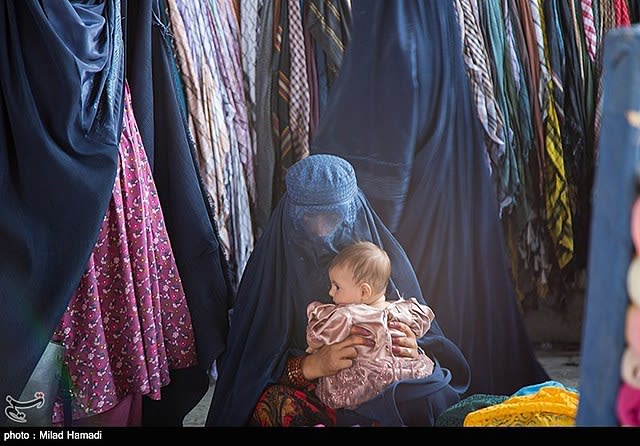The UN will leave Afghanistan in May
The Taliban banned women from working with UN, cutting last lifeline for women's services. -- by Morgaan Sinclair
“I think there is no other way of putting it than heartbreaking,” UN Development Program head Achim Steiner said. “I mean, if I were to imagine the U.N. family not being in Afghanistan today, I have before me these images of millions of young girls, young boys, fathers, mothers, who essentially will not have enough to eat.”
But, he said, the Taliban, despite the most solemn of promises not to gut women’s rights with its return power upon the U.S. withdrawal of forces—forced by the Taliban’s agreement with then U.S. President Donald Trump—has shredded the rights and safety of every women in Afghanistan. It is the now the most dangerous country in the world to be a woman.
Steiner states that the Taliban’s latest move—refusing to allow Afghan women to work for the UN to provide services to other women—means that the UN will leave Afghanistan in May if the Taliban does not recant. Steiner also says that the move is not about forcing human rights issues in the country but rather about the simple fact that programs cannot operate without Afghan women on the ground. Months ago, the Taliban promised it would not force Afghan female aid workers back into the home, but, as Steiner points out, the Taliban keeps moving the goalposts—and restricting women’s rights, pushing them further and further into shadowy nonexistence in fully incarcerated lives.
Among the Taliban’s misogynist edicts have been:
Women must be fully covered by a burqa.
Women have been banned from parks, gyms, and sports events, even if accompanied by a male. If their children want to go to a park, a male must take them.
Women must be accompanied by a male “mahram” (male chaperone) on public transportation, during international travel, and, in some cases, to work.
Women have been barred from obtaining all forms of birth control.
Women have been barred from seeking all medical care whatsoever unless they are accompanied by a male chaperone.
Women working for the finance ministry have been ordered to send their husbands to work in their place or lose their income.
Women have been barred from all education except for grammar school classes. They have been banned from universities—and from teaching at universities—as well as most high school classes.
Women have been banned from announcing the news and all other public presentations.
Women have been banned from taking part in government at any level.
Women have been fired from their jobs almost across the boards, being now confined to their homes and completely dependent on males as breadwinners.
That’s the short list.
Initially the Taliban promised the UN it could retain its Afghan female aid employees, but reversed itself in December of 2022. By February, the UN had sent home all its Afghan employees, male as well, though it has continued to pay them. But because the Taliban are adamant that women may no longer work for the UN, the UN feels it has no choice but to cease operations in May. Steiner says the UNDP is seeking further talks with the Taliban, but at this point, Steiner has little hope that they will recant.
Writes The Guardian:
The threatened move comes as two-thirds of the population, or 28 million people, are estimated to be in need of humanitarian assistance in 2023, and the US government and other G7 members have been threatening to cut aid.
Just as a reminder, it wasn’t always this way. In the 1950s and 1960s, Afghan leader Zahir Shah gave women full rights and suffrage because, he said, “it was the right thing to do.”
The women’s rights instituted by Zahir Shah largely endured in Afghanistan until the Taliban came to power in 1996. Rights were partially restored with the in-country presence of Coalition forces after the Taliban were deposed during the War in Afghanistan. They were lost upon the Taliban’s return to power in 2021.
—Morgaan Sinclair for PolitiSage


